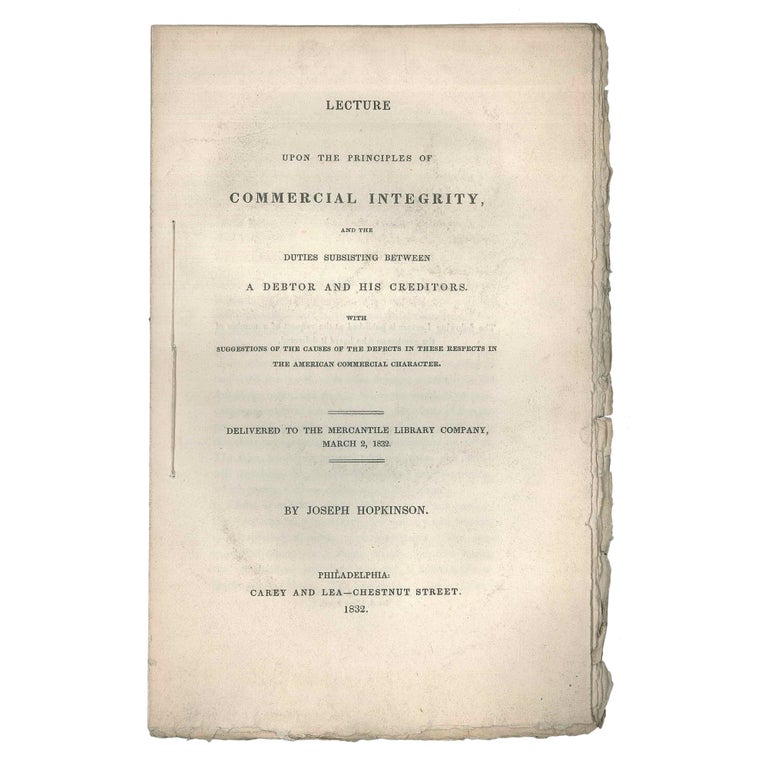
The American Merchant Represents the Character of His Country
Lecture upon the Principles of Commercial Integrity, and the duties subsisting between a debtor and his creditors. With suggestions of the causes of the defects in these respects in the American commercial character. Delivered to the Mercantile Library Company, March 2, 1832
Notes: A speech on commercial debts and the American bankruptcy laws. Hopkinson begins with the observation that merchants are the United States' ambassadors to the world: "The American merchant then should never forget, that he holds the character of his country, as well as his own, in a sacred trust; and that he betrays both, when he enters into the crooked paths of dissimulation and trick, or the broader and fouler ways of dishonesty and fraud (p. 4)."
Hopkinson goes on to bemoan the bankruptcy laws, which did not distinguish honest business failures from fraud. "They do not affect to make any distinction between honesty and dishonesty; between the man who has been ruined by the casualties of trade, and one who has wasted his estate in the most nefarious course of dissipation and vice."
Hopkinson (1770–1842) served in the US House of Representatives and as a federal court judge. His father, Francis Hopkinson, was a signor of the Declaration of Independence.
24 pages.
Edition + Condition: A near fine copy in the original binding of sewn gatherings. Pages unopened.
Publication: Philadelphia: Carey and Lea, 1832.
Item No: #306857
Price: $100
